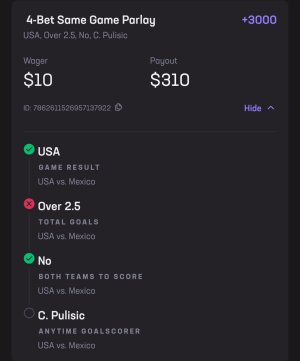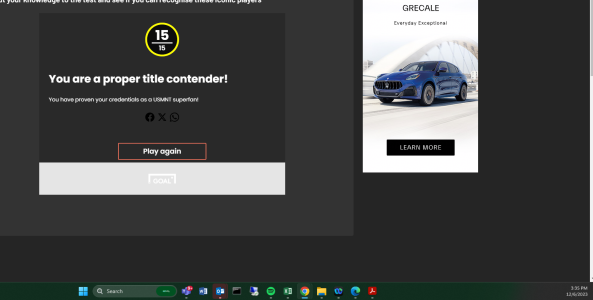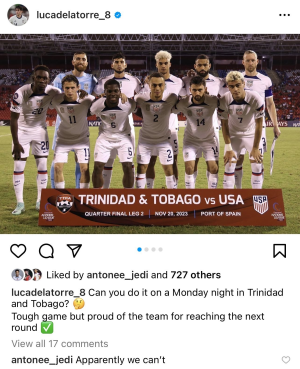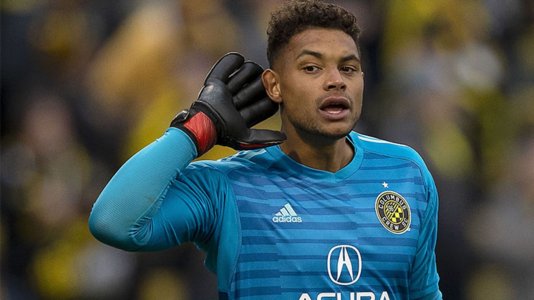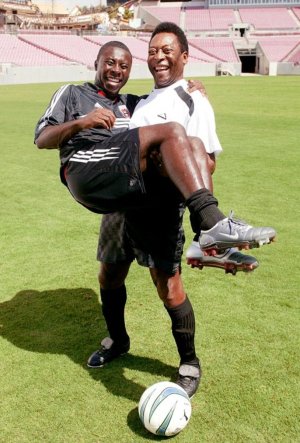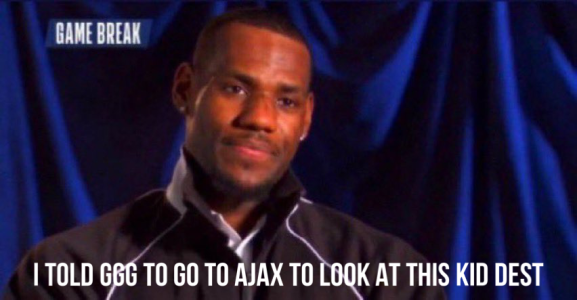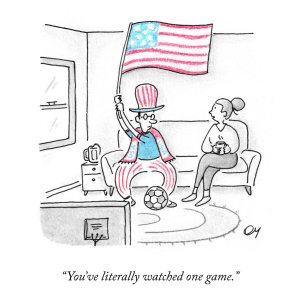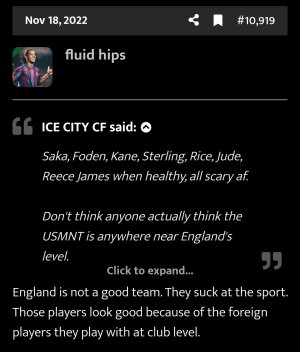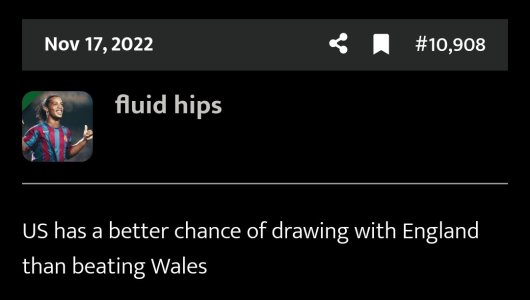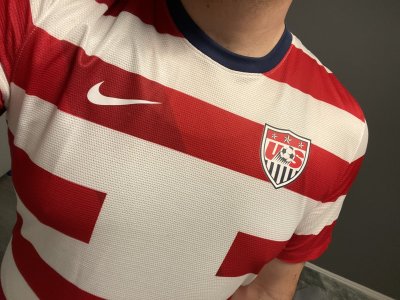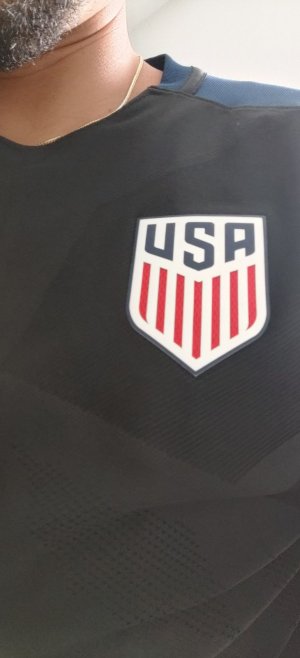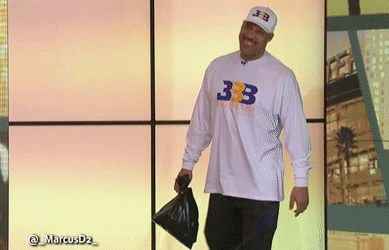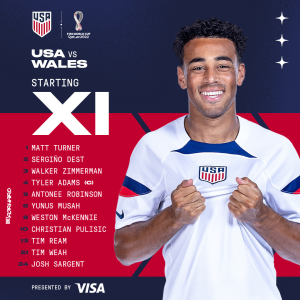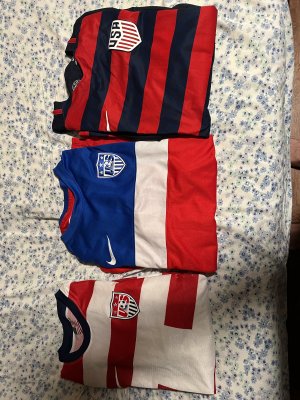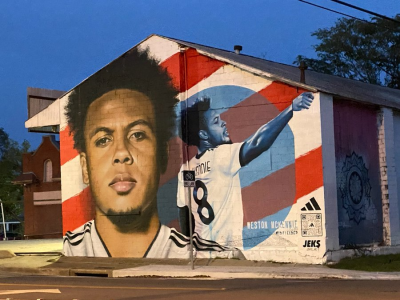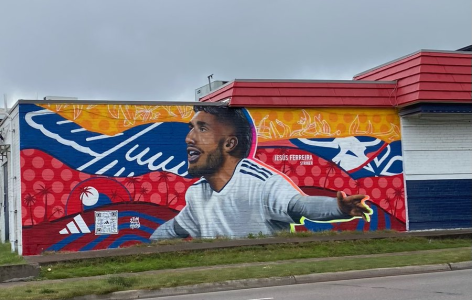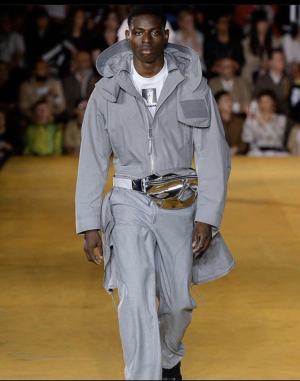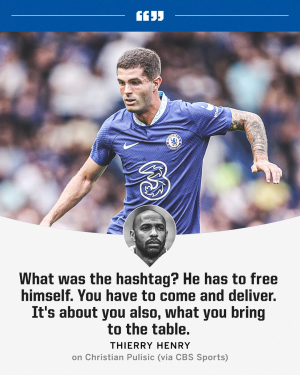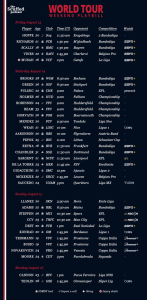- 3,805
- 98
- Joined
- Sep 26, 2000
Just got around to watching that "Team USA doc on ESPN", it was pretty cool to see the team up close and personal. Didn't know Jermaine Jones and so many players on the team are German. Anything is possible come World Cup time. We can finish first in our group or last but I just hope we bring our A game and compete to the fullest and not get overwhelmingly embarrassed with the WHOLE WORLD watching.
Very disappointing that in a country our size we cant find 23 players locally. We are just lazy so we rely on the soccer programs in other countries to highlight players with an american connection.
This has nothing to do with how we field our team. Having dual-national players play for us is a HUGE step for USSF. You can be American and not 'live' in America. AJ was born in Alabama and spent his summers in Florida, J. Green spent a most of his younger teen years in DMV. It's not like these guys have no connection to our country at all. More over, isn't that exactly what America is? A bunch of people from various countries and backgrounds living here in the land of opportunity. I live in NYC and can walk 10 blocks to the train and not hear one conversation in English. America is a melting pot and I'm happy our National Team reflects this. Regardless, every single dual-national player we have, by definition, is American - So imo that's where the argument should end.
Also - yall acting like we're the only country to take advantage of dual-nationality players. Zinedine Zidane was a citizen of both Algeria and France.. he chose to play for France. Many players that play for Germany could've also have played for Poland. Lukas Podolski was born in Poland. We've also lost players to other countries that could have played for the USMNT too... see Neven Subotic and Giuseppe Rossi. I mean, sh*t, Rossi was born in NJ and decided to play for Italy. It's within the rules so we should move on. Ya win some, ya lose some. Thank god we have JK now so we started to win a lot more of those players. Get over it.

 at whoever said Jermaine Jones could not speak English. He can speak English just fine, Not sure why he was speaking German in that episode.
at whoever said Jermaine Jones could not speak English. He can speak English just fine, Not sure why he was speaking German in that episode.



 . Can I get that hook up too? I wonder why he doesn't like any of the red gear? He tossed out the red polo & all the red kicks...
. Can I get that hook up too? I wonder why he doesn't like any of the red gear? He tossed out the red polo & all the red kicks... 





